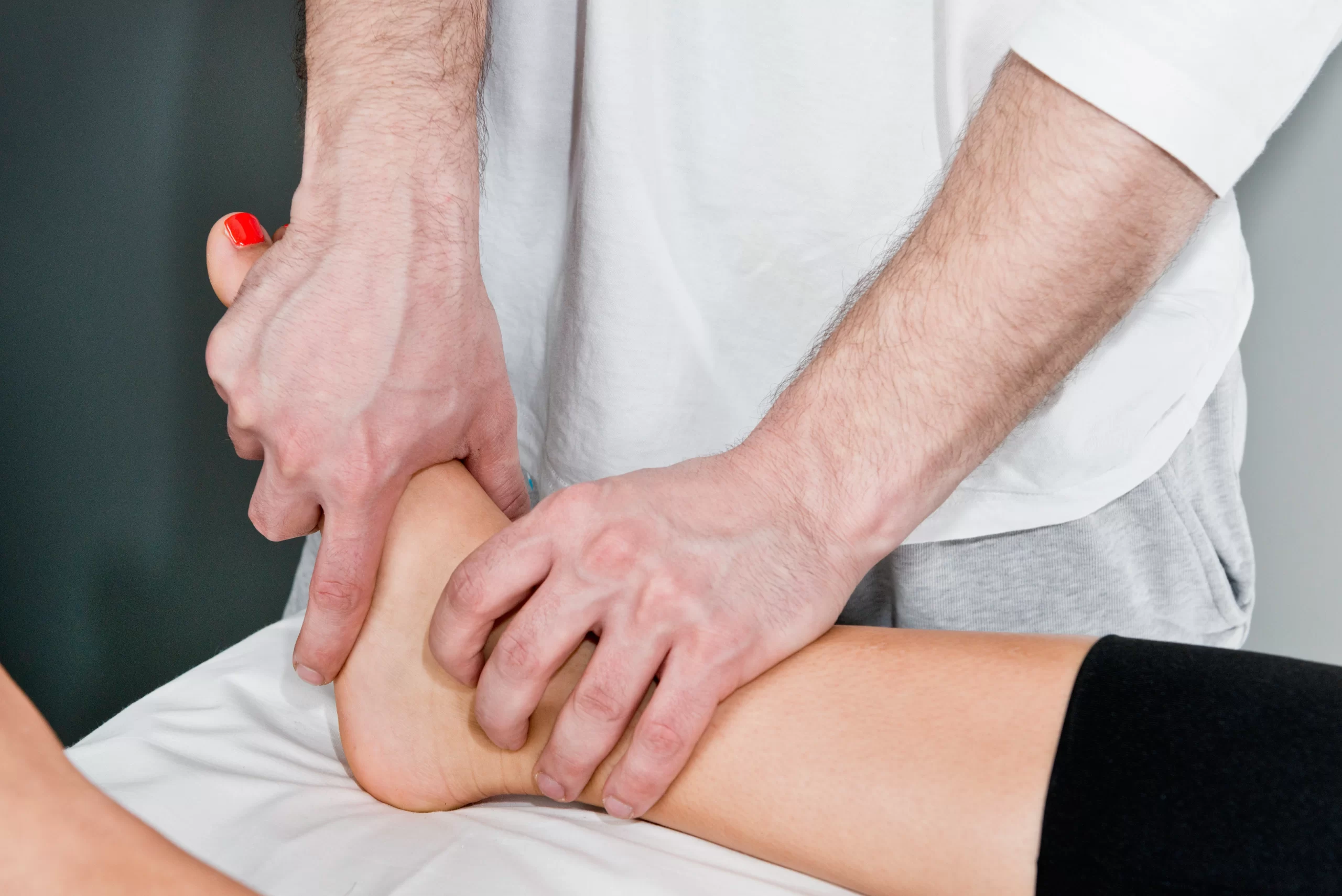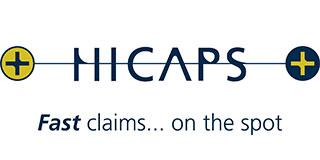Osteopathy for Achilles Injuries
A Holistic Path to Recovery With Osteopathic Treatment
Achilles injuries can disrupt daily life and limit mobility, especially for active individuals. As the most substantial tendon in the body, the Achilles plays a crucial role in movement.
Osteopathy provides a holistic approach to treating these injuries, addressing the root causes and supporting a full recovery.
About the Achilles Tendon

The Achilles tendon connects the calf muscles, gastrocnemius, and soleus to the heel bone, or calcaneus. This tendon enables key movements like walking, running, and jumping. It absorbs significant force—sometimes several times the body’s weight—during physical activities.
Despite its strength, the Achilles tendon is prone to overuse, strain, and injury.
What Is Achilles Tendonitis?

Achilles tendonitis is an acute condition characterized by inflammation of the Achilles tendon. It often results from sudden overuse or strain, particularly in runners or those who abruptly increase their activity levels.
Symptoms include pain, stiffness, and swelling in the tendon, especially during or after exercise. This condition requires prompt attention to prevent progression to a chronic issue.
What Is Achilles Tendinopathy?
Achilles tendinopathy is a chronic condition resulting from repetitive stress and microtrauma to the tendon. Unlike tendonitis, tendinopathy is degenerative and lacks significant inflammation.
Over time, the tendon fibres weaken and may develop microtears, leading to persistent pain and stiffness. Tendinopathy develops gradually and is often more challenging to treat if not addressed early.
Causes of Achilles Injuries

Achilles injuries commonly occur due to overuse, improper biomechanics, or external factors. When training intensity increases abruptly, high-impact activities like running or jumping frequently strain the tendon significantly.
Wearing inadequate footwear or having tight calf muscles can exacerbate the issue. Biomechanical issues, such as flat feet, high arches, or an improper gait, place additional stress on the tendon.
Age-related wear and tear also reduces the tendon’s elasticity, increasing vulnerability to injury.
Signs and Symptoms of Achilles Injury

The symptoms of an Achilles injury vary based on severity. Common signs include pain and stiffness along the back of the ankle, often worse in the morning or after periods of rest.
Swelling, tenderness, and warmth around the tendon are also typical.
In severe cases, individuals may struggle to stand on tiptoes or push off the injured foot. A popping sensation at the time of injury may signal a rupture, which requires immediate medical attention.
What Should I Do If I Have Injured My Achilles?
If you suspect an Achilles injury, act quickly to prevent further damage. Rest and avoid activities that exacerbate the pain. Ice the affected area to reduce swelling and inflammation, and elevate the foot to minimize fluid buildup.
Seek professional advice from a healthcare provider, such as an osteopath, to assess the injury and create an effective treatment plan. Avoid ignoring or pushing through the pain, as this can worsen the condition and prolong recovery.
Osteopathic Treatment for Achilles Injuries

Osteopathy offers a comprehensive and patient-centered approach to treating Achilles injuries. By addressing the injury and its underlying causes, osteopathy supports a holistic recovery.
Soft tissue techniques, such as massage and myofascial release, reduce tension in the calf muscles, alleviating strain on the Achilles tendon. Joint mobilization improves ankle and foot mobility, ensuring proper alignment and reducing biomechanical stress.
Tailored exercise programs help strengthen and stretch the tendon, rebuild resilience, and prevent future injuries. Postural assessments identify compensatory patterns that may contribute to the problem, allowing osteopaths to address these imbalances effectively.
Physiotherapy vs. Osteopathy for Achilles Injuries

While physiotherapy and osteopathy are both effective for Achilles injuries, they differ in their approaches.
Physiotherapy focuses primarily on rehabilitating the injured tendon through targeted exercises and modalities such as ultrasound or bracing.
Osteopathy takes a broader perspective, addressing the entire musculoskeletal system to enhance movement and reduce strain on the tendon.
These approaches can complement one another, with osteopathy providing a holistic foundation and physiotherapy delivering tendon-specific rehabilitation.
Nonsurgical and Surgical Treatments for Achilles Injuries
The severity of Achilles injuries determines the treatment options. Nonsurgical treatments often include rest, ice, anti-inflammatory medications, and physical therapy or osteopathy.
Orthotics or supportive footwear may be recommended to correct biomechanical issues, while extracorporeal shockwave therapy can help stimulate healing in chronic tendinopathy cases.
In more severe instances, such as a complete rupture, surgery may be necessary to repair the tendon. Post-surgical rehabilitation is essential to restore strength and mobility.
Both physiotherapy and osteopathy can play vital roles in recovery after surgery.
Conclusion: Achieve Achilles Recovery with Osteopathy
Achilles injuries, whether acute or chronic, require careful management to ensure adequate recovery and prevent recurrence.
Osteopathy provides a holistic approach to treating these injuries, addressing the underlying causes and supporting overall musculoskeletal health.
If you are dealing with an Achilles injury, Chirn Park Health Group offers expert osteopathic care to help you regain strength and mobility. Our experienced Gold Coast osteopaths specialize in treating sports injuries and supporting your journey to recovery.
Contact our Osteopathy Gold Coast clinic in Southport to get back to doing what you love confidently and efficiently.
Health Disclaimer: The information provided in this article is for educational purposes only and is not intended as a substitute for professional medical advice, diagnosis, or treatment. If you suspect an Achilles injury or other medical condition, please consult a qualified healthcare professional for personalized assessment and treatment.









